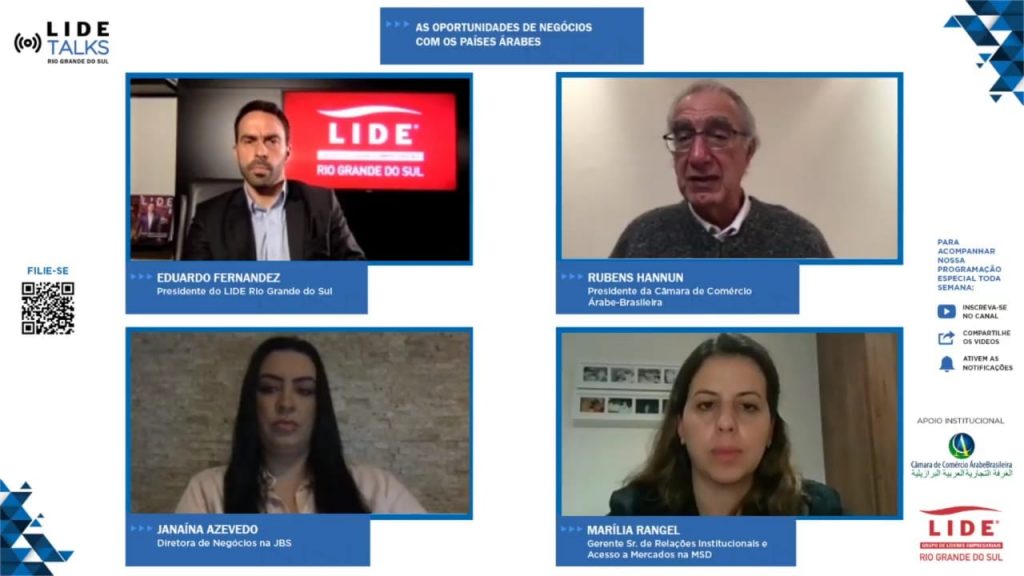São Paulo – Double taxation is one of the biggest issues when it comes to attracting further investment from Arab countries into Brazil. So said Arab Brazilian Chamber of Commerce (ABCC) president Rubens Hannun during an online debate hosted by LIDE RS, the Rio Grande do Sul, Brazil chapter of business leaders group LIDE.
The event (pictured above) took place on Thursday (20). Discussions revolved around business opportunities in Arab countries, featuring LIDE RS president Eduardo Fernandez as moderator. Panelists included JBS Business director Janaína Azevedo and MSD senior manager for Institutional Relations and Market Access Marília Rangel.
One of the questions raised was getting Arab investment funds to invest. “The Arabs are looking for governance and legal safety. They will not lend cash; they will invest in production. They make actual investments,” said Hannun, who sees the complexity of Brazilian law as an obstacle to that end. “Double taxation keeps a lot of investment from happening. A double taxation agreement [between the United Arab Emirates the Brazil] is pending congressional approval. For instances such as this, we have created a Brazil-Arab Countries Parliamentary Group of senators and deputies, so that these issues can be discussed at greater length,” he said.
Regarding transactions of other kinds, Hannun believes the pandemic response brought about quicker responses. “We need to turn the key fast. The Chamber is hosting webinars virtually on a weekly basis,” he said, adding that there are advantages to online meetings, which are speedier and keep Brazilians and Arabs closely connected.
Marília Rangel of company MSD believes that tapping into Arab markets is a must. “They are in a region with one of the fastest growing populations in the world, and they regard many Brazilian brands as household names, among other reasons due to these brands’ names and because they identify with the products,” she said, referencing the good reputation that Brazilian-made products have attained in the Arab countries.
As to the perception that it’s harder for a woman to do business with the Arabs, Janaína Azevedo of JBS’s own career counters that notion. “My career does not fall in line with the statistics according to which ‘women don’t do business with Arabs.’ Of course, each country is different; some are more conservative and others are more open, but then that’s the case anywhere in the world. It’s a cultural thing. Women should indeed keep doing business with the Arabs. I hope we’ll see more women join this market and assume leadership positions,” she said.
Azevedo said Arab countries are about sales volume, challenges, and opportunities. “One of the people I learned to negotiate the most from was Arabs. They’re about trust and speaking eye-to-eye. Once you earn their trust, that’s it,” she concluded. The webinar was part of the LIDE Talks online series.
Translated by Gabriel Pomerancblum




